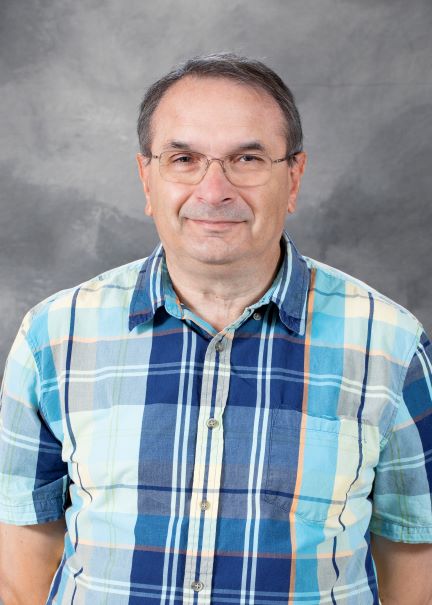Plamen Stefanov among recipients of 2023 Frontiers of Science Award
08-11-2023

Plamen Stefanov, professor of mathematics, is among the inaugural recipients of the Frontiers of Science Award presented at the First International Congress of Basic Science (ICBS), held in Beijing in July 2023.
The award honors top research with an emphasis on achievements from the past five years which are both excellent and of outstanding scholarly value. Scientific works in both basic and applied research were chosen in 34 areas of the three basic science fields (mathematics, theoretical physics, and theoretical computer and information sciences) represented at the ICBS.
Stefanov and co-authors Gunther Uhlmann (University of Washington) and András Vasy (Stanford University) received the award for a paper titled “Local and global boundary rigidity and the geodesic X-ray transform in the normal gauge” published in 2021 in the Annals of Mathematics. The paper was recognized as one of the best three papers in Geometric Analysis published in the past five years. “This paper solves the boundary rigidity problem for Riemannian manifolds with boundary and provides a complete solution to a problem formulated in 1905,” stated the jury of international scientists. The award also included a $25,000 cash prize shared among the three co-authors.
The authors solved a problem going back to 1905 when Herglotz and Wiechert and Zoeppritz asked whether one can determine the inner structure of Earth from times of propagation of seismic waves measured at the surface. They solved a version of this problem assuming that Earth’s interior is modeled by a variable speed of propagation depending on the distance to the center of the Earth only. The more general case of a variable speed was resolved in the 1970’s. In 1981, Michel posed a more general version of this problem as boundary or lens rigidity one in Riemannian geometry: can we recover a Riemannian metric, up to an isometry, from such boundary travel times? A general metric allows us to model anisotropic media: where the speed of propagation can depend on the direction; something that the single speed model cannot do. The authors showed that this is possible under some natural geometric conditions; and it is also possible locally: knowing the travel times locally recovers the metric, and therefore the properties of the medium, locally.
While there are applications to seismology and medical imaging, the award is based on the mathematical discovery.
The goal of the Frontier of Science Award is to encourage young scholars to look to the frontiers of basic science, set goals to obtain breakthrough results as early as possible, and contribute wisdom and energy to humankind's study of the mysteries of the natural world.
The complete list of recipients of the Frontiers of Science Award is here.